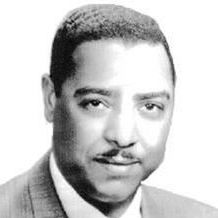 The Graduate School of Education at Rutgers University has announced that it will establish the Samuel D. Proctor Institute for Leadership, Equity, and Justice in the fall of 2019. The new institute is named for the late Samuel DeWitt Proctor, who was a Rutgers faculty member for 15 years and who served as the first Martin Luther King Jr. Chair and visiting professor in the Department of Africana Studies. Proctor was the first Black faculty member at Rutgers to have an endowed professorship named in his honor.
The Graduate School of Education at Rutgers University has announced that it will establish the Samuel D. Proctor Institute for Leadership, Equity, and Justice in the fall of 2019. The new institute is named for the late Samuel DeWitt Proctor, who was a Rutgers faculty member for 15 years and who served as the first Martin Luther King Jr. Chair and visiting professor in the Department of Africana Studies. Proctor was the first Black faculty member at Rutgers to have an endowed professorship named in his honor.
Dr. Proctor was a graduate of Virginia Union University and earned a Ph.D. in theology at Yale University. He served as president of Virginia Union University and what is now North Carolina A&T State University. He joined the faculty at Rutgers University in 1969 and taught there for 15 years. Dr. Proctor died in 1997.
The university has appointed Marybeth Gasman as the leader of the new institute. She will also hold the Samuel DeWitt Proctor Endowed Chair in Education in the Graduate School of Education.
Currently, Dr. Gasman is the Judy & Howard Berkowitz Professor of Education in the Graduate School of Education at the University of Pennsylvania. She also serves as the founding director of the Penn Center for Minority Serving Institutions. She is a scholar of American higher education and focuses on historically Black colleges and universities, racism, diversity, philanthropy, and higher education leadership.
“I am honored to join Rutgers GSE as the Samuel DeWitt Proctor Endowed Chair in Education and a Distinguished Professor,” said Dr. Gasman. “We are at a critical moment for education in our country and I am looking forward to honoring the legacy of Dr. Proctor by advancing his and my collective vision for diversity, justice and equity in education in New Jersey and across the country. I am particularly excited to join a public research university that boasts such rich and beautiful diversity.”











Dr. Proctor earned his doctorate from Boston University not Yale. He started at Yale but transferred to Boston to be closer to Boston hospitals because of his ailing son.
Dr.Proctor was President at Union in 1957 when I entered Union,he was one of the people that taught us to be all we could be,I believed him as did so many more Unionites.
Thank you Rutgers for this payment of respect.
I appreciate that Rutgers has created this Institute. It seems like an honor long overdue. However, When I see and hear that it is being headed by a white woman (I don’t know how she identifies) I feel frustrated, perplexed, and aghast. Another example of white privilege? I really wish this post was fulfilled by a black or brown academic (whose numbers are shrinking at universities).. Universities please do a better job of hiring people with identities associated with their positions.. This leader may have oppressed intersecting identities that are not obvious, but they do not trump their whiteness, privilege, and supremacy.